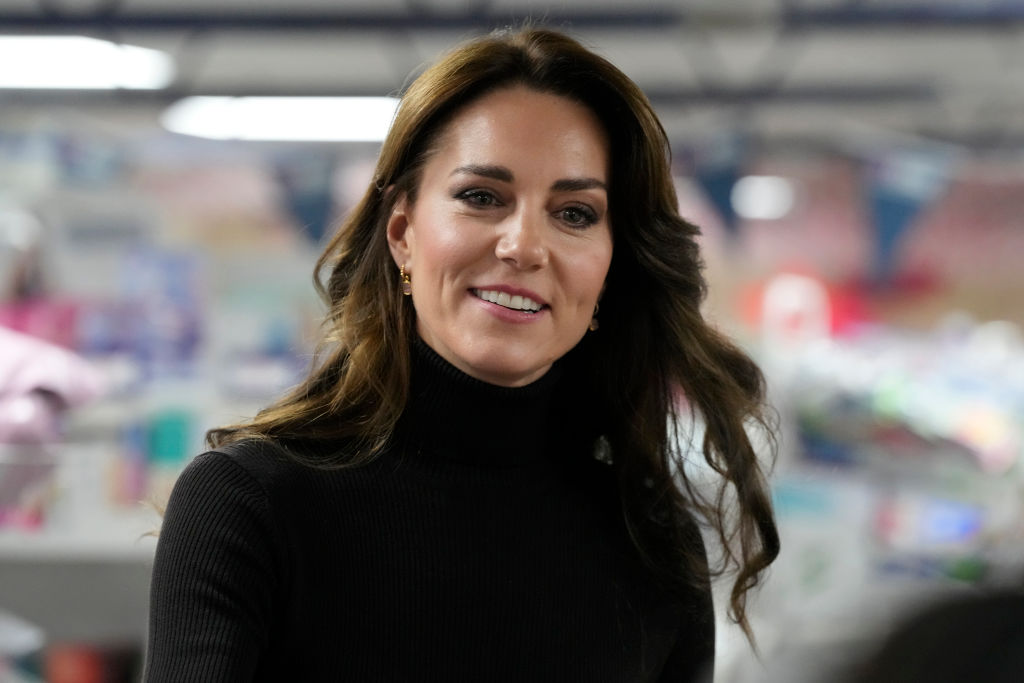- Saturday, July 27, 2024
While the instances of people below 50 getting diagnosed with the ailment have increased, medical experts are yet to understand the reason behind it.

By: Shubham Ghosh
WHEN Catherine, Princess of Wales, disclosed her cancer diagnosis last week in an emotional video, part of the shock stemmed from the fact that a typically healthy 42-year-old was afflicted with a disease that primarily affects older individuals.
However, researchers have been increasingly raising concerns about the growing incidence of cancer among people under 50, with the reasons remaining elusive.
A comprehensive study published in BMJ Oncology revealed last year a significant surge in the rate of under-50s diagnosed with 29 common cancers across the globe, increasing by nearly 80 per cent between 1990 and 2019.
The researchers projected that the new cancer cases among younger adults will escalate by another 30 per cent by the end of this decade, with affluent nations bearing a particularly heavy burden.
Read: Sunak blasts ‘sections of media’ for treating Catherine, who is fighting cancer, ‘unfairly’
The rise in cases, coupled with the escalating global population, has led to a nearly 28 per cent rise in cancer-related deaths among individuals under 50 over the past three decades.
What is remarkable is that this increase has occurred despite the fact that survival rates for cancer patients of all ages have approximately doubled over the last half a century.
Read: Why Adelaide Cottage may not suit Catherine’s recovery from cancer
Shivan Sivakumar, a cancer researcher at the University of Birmingham in the UK, has characterized this trend as an “epidemic” of young adult cancer. Following Kate Middleton’s revelation last Friday (22) that her cancer was detected following abdominal surgery earlier this year, Sivakumar and other medical professionals have voiced concerns about the growing number of younger cancer patients they are encountering in their clinics.
Although breast cancer continues to be the most prevalent among individuals under 50, researchers have voiced significant apprehension regarding the increasing incidence of gastrointestinal cancers in younger adults. This includes cancers affecting the colon, pancreas, liver, and oesophagus.
According to the American Cancer Society, colon cancer has now become the leading cause of cancer-related deaths among men under 50 in the United States. Among women in this age group, it ranks second, trailing only breast cancer.
The case of “Black Panther” actor Chadwick Boseman, who succumbed to colorectal cancer at the age of 43 in 2020, exemplifies the visibility of colorectal cancer diagnoses among younger individuals.
The doctors, however, remain clueless.
“We just don’t have the evidence yet” to say exactly what is causing this rise, Sivakumar told AFP, adding a combination of factors could be behind this.
Helen Coleman, a cancer epidemiology professor at Queen’s University Belfast who has studied early onset cancer in Northern Ireland, gave two potential explanations while speaking to the news outlet.
One theory suggests that individuals in their 40s were exposed to cancer-causing factors, such as tobacco smoke, alcohol, or obesity, at earlier stages of life compared to previous generations.
Coleman said the “obesity epidemic” didn’t emerge until the 1980s.
Sivakumar also highlighted obesity as a potential contributing factor, suggesting it could elucidate part of the puzzle. However, he noted that there’s another subset of under-50 patients who neither exhibit obesity nor possess genetic predispositions, yet still develop cancer. This phenomenon cannot simply be attributed to “statistical chance”, according to him.
Another perspective, as mentioned by Coleman, suggests that there might be distinct factors at play within her generation. Various potential culprits, including chemicals, new medications, and microplastics, have been implicated, although none have been definitively proven.
Some have also put the blame on the so-called ultra-processed foods. “But there’s very little data to back any of that up,” Coleman was quoted as saying by AFP.
Another hypothesis points out that alterations in our diet may be affecting our gut microbiome.
While there is nothing conclusive yet on this, Coleman said her own research suggested that it is cancer that causes changes to the microbiome, not the other way around.
Anti-vaccine conspiracy theorists have blamed Covid-19 vaccines.
This can be readily debunked as well because the rise in young adult cancer has occurred over many decades, whereas vaccines have only been made available for a relatively short period of time.
In 2021, the US reduced the recommended age for screening to 45 to address the growing instances of colorectal cancer. Other nations have not followed it yet, the AFP reported.
However, researchers hoped that Catherine’s experience would remind people at home that they should consult their doctor if they sense anything is wrong.
“People know their bodies really well,” Sivakumar said.
“If you really feel that something isn’t right, don’t delay — just get yourself checked out.”
(With AFP inputs)